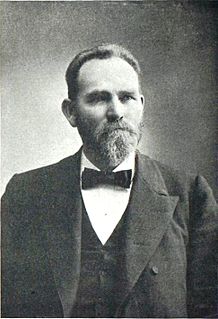A Quote by Mata Amritanandamayi
Children, we may go to the temple, reverently circumambulate the sanctum sanctorum and put our offering in the charity box, but on our way out if we kick the beggar at the door, where is our devotion? Compassion towards the poor is our duty to God. Mother is not saying that we should give money to every beggar that sits in front of a temple, but do not despise them. Pray for them as well. When we hate others, it is our own mind that becomes impure. Equality of vision is God.
Related Quotes
When we want to help the poor, we usually offer them charity. Most often we use charity to avoid recognizing the problem and finding the solution for it. Charity becomes a way to shrug off our responsibility. But charity is no solution to poverty. Charity only perpetuates poverty by taking the initiative away from the poor. Charity allows us to go ahead with our own lives without worrying about the lives of the poor. Charity appeases our consciences.
The battle for our lives, and the lives and souls of our children, our husbands, our friends, our families, our neighbors, and our nation is waged on our knees. When we don't pray, it's like sitting on the sidelines watching those we love and care about scrambling through a war zone, getting shot at from every angle. When we do pray, however, we're in the battle alongside them, approaching God's power on their behalf. If we also declare the Wordog God in our prayers, then we wield a powerful weapon against which no enemy can prevail.
I would say to bishops, and to all men in authority, we should have an interest in carrying on this work. We should labor to get the Spirit of God. It is our right, our privilege, and our duty to call upon the Lord, that the vision of our mind may be opened, so that we may see and understand the day and age in which we are living. It is your privilege, and mine too, to know the mind and will of the Lord concerning our duties, and if we fail to seek after this, we neglect to magnify our calling.
Let us truly be a temple-attending and temple-loving people...We should not go only for our kindred dead, but also for the personal blessings of temple worship, for the sanctity and the safety that are within those hallowed and consecrated walls. As we attend the temple, we learn more richly and deeply the purpose of life and the significance of the atoning sacrifice of the Lord Jesus Christ. Let us make the temple, together with temple worship and temple covenants and temple marriage, our ultimate earthly goal and the supreme mortal experience.
Before making peace, war is necessary, and that war must be made with our self. Our worst enemy is our self: our faults, our weaknesses, our limitations. And our mind is such a traitor! What does it? It covers our faults even from our own eyes, and points out to us the reason for all our difficulties: others! So it constantly deludes us, keeping us unaware of the real enemy, and pushes us towards those others to fight them, showing them to us as our enemies.
We can reject everything else: religion, ideology, all received wisdom. But we cannot escape the necessity of love and compassion. This, then, is my true religion, my simple faith. In this sense, there is no need for temple or church, for mosque or synagogue, no need for complicated philosophy, doctrine, or dogma. Our own heart, our own mind, is the temple. The doctrine is compassion. Love for others and respect for their rights and dignity, no matter who or what they are: ultimately these are all we need.
Children, we are told to make an offering at the temple or at the feet of the guru, not because the Lord or guru is in need of wealth or anything else. Real offering is the act of surrendering the mind and the intellect. How can it be done? We cannot offer our minds as they are, but only the things to which our minds are attached. Today our minds are greatly attached to money and other worldly things. By placing such thoughts at the feet of the Lord, we are offering Him our heart. This is the principle behind giving charities.
How can we give to the Lord? What shall we give to him? Every kind word to our own, every help given them, is as a gift to God, whose chief concern is the welfare of his children. Every gentle deed to our neighbor, every kindness to the poor and suffering, is a gift to the Lord, before whom all mankind are equal. Every conformity to the Lord's plan of salvation-and this is of first importance-is a direct gift to God, for thereby we fit ourselves more nearly for our divinely planned destiny.
There is no hate without fear. Hate is crystallized fear, fear's dividend, fear objectivized. We hate what we fear and so where hate is, fear is lurking. Thus we hate what threatens our person, our liberty, our privacy, our income, our popularity, our vanity and our dreams and plans for ourselves. If we can isolate this element in what we hate we may be able to cease from hating... Hate is the consequence of fear; we fear something before we hate; a child who fears noises becomes the man who hates them.
We mourn; we sorrow for our loved ones that go - our wives, our husbands, our children, our parents; we sorrow for them; and it is well and proper that we should moum for them and shed tears for the loss, for it is our loss; but it is their gain, for it is in the march of progress, advancement and development. It will be all right when our time comes, when we have finished our work and accomplished what the Lord required of us.








































